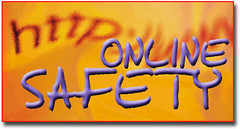 Image by paul.klintworth via Flickr
Image by paul.klintworth via FlickrThe United Kingdom has already signed the 2007 Convention on the Protection of Children against Sexual Exploitation and Sexual Abuse.
The Council of Europe, the region’s oldest assembly of nations, hopes the treaty will soon become part of national law. Its experts are concerned that the Internet is fast becoming the “tool of choice” for child predators wishing to “groom” children whom they may later abuse and exploit.
An Internet Watch Foundation’s report, published in April 2009, revealed that some 1,500 websites worldwide are responsible for the online commerce in child pornography. Some 69% of the victims exploited in images or videos appeared to be under 10 years of age.
Alarmed by the scale and profitability of this Internet trade and by the use of new media tools to corrupt youngsters for sexual purposes, the Council of Europe is now encouraging its member states to seek greater cooperation with the private sector.
It sees ratification of the treaty as the “logical next step” to be taken by the organisation’s 47 member states in combating the distribution of sexually abusive images of children.
If the convention is approved, information and communication technology officials will join counterparts from the travel and tourism industry and the banking and financial sector in a partnership with national authorities. It is designed to improve public-private sector coordination and to prevent business structures from being used to feed the child sex trade.
“Private sector enterprises, particularly those related to the information and communication technology sectors, the banking and finance industry, and the travel and tourism sectors, are likely to be in contact with situations giving rise to sexual exploitation and abuse of children.,” said the Council of Europe’s Deputy Secretary General Maud de Boer-Buquicchio.
“Corporate social responsibility must therefore be encouraged and the private sector must play a more active role in preventing sexual abuse of children. Co-operation between private industry, public authorities and law enforcement is essential. No agency alone can achieve the goal of eliminating sexual exploitation of children.
“The Internet is a fantastic tool for all of us, and in particular for children. But for them, it can also represent a world full of dangers: their natural curiosity and eagerness to discover the world around them makes them particularly vulnerable.
"The growing phenomenon of grooming and the exchange of child pornographic images via the Internet are human rights abuses of the worst kind, and our new Convention seeks to eliminate these phenomena by criminalising 'grooming.'"
The convention’s multi-agency approach requires governments to improve coordination between national education authorities, the health sector, social services, law enforcement and judicial authorities.
The treaty encourages law-makers to make sure that confidentiality rules “do not constitute an obstacle” to the reporting of suspected crimes. It also recommends that national law covers so-called ‘sex-tourism’ offences. This would allow courts to try nationals suspected of committing criminal offences against children in foreign countries where they escape prosecution by benefitting from legal loopholes or from the ‘blind eye’ of authorities.
Campaign: Building A Europe For And With Children
Game: How To Stay Safe Online

No comments:
Post a Comment